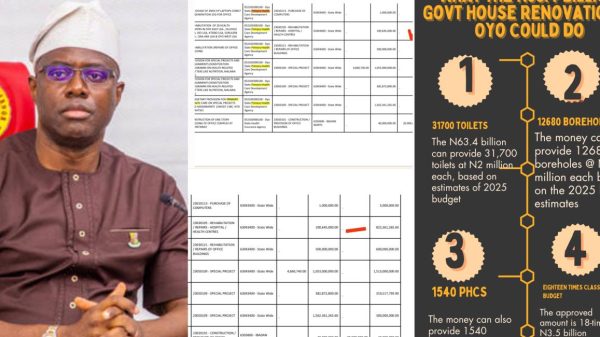The Federal Capital Territory Administration (FCTA) has issued a stern warning to prominent individuals and organizations in Abuja regarding the potential revocation of their Certificates of Occupancy (C-of-O) if outstanding payments are not settled within two weeks. This notice affects 3,273 land allottees in the upscale Maitama District.
The FCTA’s ultimatum, released recently, is a response to the need for infrastructural development in the area. It outlines that failure to pay outstanding land bills, rents, and fees may result in the withdrawal of the Rights of Occupancy (R-of-O) and subsequent reallocation of the plots.
Notable figures on the list of affected landowners include Chief of Staff to the President Femi Gbajabiamila, Speaker of the House of Representatives Abbas Tajudeen, Secretary to the Government of the Federation George Akume, and former Senate President Bukola Saraki. Other prominent individuals include former governors, lawmakers, and the children of former President Muhammadu Buhari, Yusuf and Zahra Buhari.
The FCTA’s move aims to enhance land administration in the capital, an area previously plagued by corruption and bureaucratic inefficiencies. In August, the administration had already issued a four-month window for all landholders to settle their fees, emphasizing the importance of timely payments for the development of critical infrastructure.
According to Ekarikpong Ukpanah, Director of the Land Administration Department, non-payment of land processing fees hinders the FCTA’s ability to fund essential projects and contributes to rampant land speculation. He highlighted that prioritizing genuine developers is essential to moving forward.
The Minister of the FCT, Nyesom Wike, has previously addressed the issue of fraudulent land allocations, stating that measures are being implemented to ensure each housing unit in the territory is legally documented, thereby protecting investors and developers.
The deadline set by the FCTA underscores its commitment to improving land management in Abuja while ensuring compliance with the regulations outlined in the Land Use Act.
















































































































